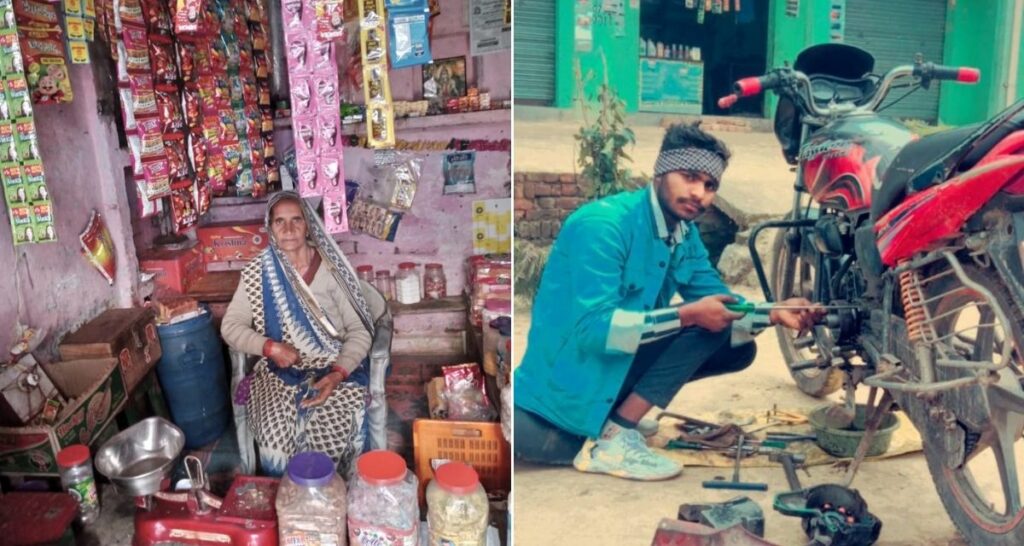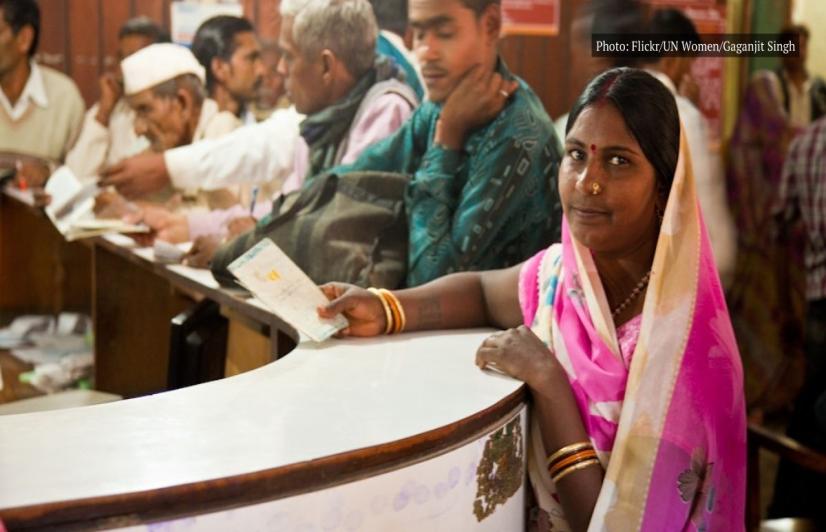By Jinit Parmar
“My family had very little to survive on after the first wave of the pandemic, back in March 2020. My husband lost his job in Delhi, but we didn’t lose hope. With help from an NGO, our relatives and friends, we managed to buy an e-rickshaw in Delhi for him and also opened a grocery store in our village. My family is now financially secure,” said a proud Suneta, who adds to her family’s income by sewing clothes at her house in Uttar Pradesh’s Kamrao village. It wasn’t much trouble for Suneta to increase her hours on her sewing machine because her two sons – students of Class 3 and Class 9 — helped her with the household chores. In fact, the financial support and encouragement her family received helped her become an entrepreneur.
The mother of two credited her success to the Pardada Pardadi Educational Society (PPES), a non-profit organisation based in Anupshahr in Bulandshahr district, which helped her arrange for funds to purchase the e-rickshaw for her husband. “My husband used to drive an autorickshaw a few years ago. So when he lost his job in Delhi, we decided that buying one now would help him continue to stay and earn money in the city,” Suneta explained. “When we approached PPES in June 2020 for aid, they helped us secure a collateral-free, low-interest loan from a bank. I’m also a member of the Avanti Bai Lodhi Self-Help Group. We help each other financially to a small extent.”
“Compared to our financial situation in the early days of the pandemic, we are doing better now. I earn through my tailoring work, and my husband, too, has a steady source of income. The situation in our house is stable now,” added Suneta, whose village is around 200 km away from Delhi.
Also read: In Jharkhand’s Dhanbad, Women SHGs Become Mushroom Entrepreneurs & Fish Farmers
In late 2020, a report highlighted that India ranked among the worst-performing major economies in the world, despite the government claiming to have opened up its coffers to soften the pandemic’s blow on the country’s economy. However, the severity of the damage caused by Covid-19 in India is evident from the sharp decline in employment numbers — an estimated 112 million workers lost their jobs in the country in April 2020. Bhuriya Devi and her 11-member family in Kamrao village were among the many victims of the Covid-19 pandemic, having lost their source of livelihood to the evolving virus. Narrating their plight, she said: “I have three sons who used to work at a factory. When the coronavirus began to spread, we weren’t too worried. But as the days passed, we learnt that thousands of people were losing their jobs every day. Months into the pandemic, all three of my sons lost their jobs. This left my family devastated. We didn’t have any clue how we’d survive.”

Also read: In J&K’s Bhaga Village, Women SHGs Earn Livelihood During The Pandemic
Jinit Parmar covers rural affairs, current issues, politics, tech, etc. Leads at reach.jinit@gmail.com.
Featured Image Source: Flickr/UN Women/Gaganjit Singh
This story was published by 101 Reporters and has been re-published here with consent.
About the author(s)
101Reporters is a pan-India network of grassroots reporters that brings out unheard stories from the hinterland.





